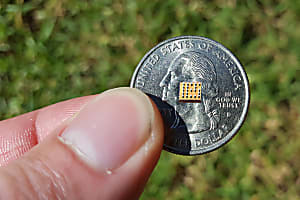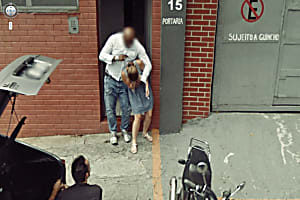Hear marital disputes in-camera, suggests SC
Dhananjay Mahapatra | TNN | Oct 10, 2017, 04:16 IST
NEW DELHI: In a landmark verdict aimed at keeping matrimonial disputes private and protecting the dignity of women, the Supreme Court on Monday ruled that it would be advisable for family courts to conduct in-camera hearings to resolve differences between husband and wife over divorce, maintenance and custody of children.
"In view of the scheme of the Family Courts Act, 1984, and in particular Section 11, the hearing of matrimonial disputes may have to be conducted in-camera," a bench headed by Chief Justice Dipak Misra said. Matrimonial disputes in family courts have been a fertile ground for parties to make wild accusations against each other and fight bitterly over custody of children as well as maintenance.
Allowing video-conferencing facility in matrimonial disputes would undermine the sanctity of concepts like constitutional identity, freedom of choice, dignity of a woman and affirmative rights conferred on her by the Constitution, Justice Misra said in the judgment, written on his behalf and that of Justice A M Khanwilkar. Justice D Y Chandrachud penned a dissent note.
Justice Misra said the family court's primary duty was to make every effort for conciliation between estranged couples. "Once a settlement fails and if both parties give consent that a witness can be examined through video-conferencing... when they give consent that it is necessary in a specific factual matrix having regard to the convenience of the parties, the family court may allow the prayer for video-conferencing," he said.
In addition, if the family court, after failing to facilitate a settlement between the couple, thinks it would serve justice by permitting video-conferencing to conduct the proceedings, it could so order, the SC said but remained firm that the SC or high courts could not order video-conferencing on a petition filed by a woman seeking transfer of the matrimonial dispute from one place to another.
However, Justice Chandrachud said, "Appropriate deployment of technology facilitates access to justice. Litigation under the Family Courts Act, 1984, is not an exception to this principle. This court must be averse to judicially laying down a restraint on such use of technology which facilitates access to justice to persons in conflict, including those involved in conflicts within the family. Modern technology is above all a facilitator, enabler and leveller.
"Video conferencing is a technology which allows users in different locations to hold face to face meetings. Video conferencing is being used extensively the world over... Video conferencing reduces cost, time, carbon footprint and the like.
"There is a fallacy in the hypothesis that an in-camera trial is inconsistent with the usage of video-conferencing techniques. A trial in-camera postulates the exclusion of the public from the courtroom and allows for restraints on public reporting... The proper adoption of video-conferencing does not negate the postulates of an in-camera trial even if such a trial is required by the court or by one of the parties under Section 11."
"In view of the scheme of the Family Courts Act, 1984, and in particular Section 11, the hearing of matrimonial disputes may have to be conducted in-camera," a bench headed by Chief Justice Dipak Misra said. Matrimonial disputes in family courts have been a fertile ground for parties to make wild accusations against each other and fight bitterly over custody of children as well as maintenance.
Allowing video-conferencing facility in matrimonial disputes would undermine the sanctity of concepts like constitutional identity, freedom of choice, dignity of a woman and affirmative rights conferred on her by the Constitution, Justice Misra said in the judgment, written on his behalf and that of Justice A M Khanwilkar. Justice D Y Chandrachud penned a dissent note.
Justice Misra said the family court's primary duty was to make every effort for conciliation between estranged couples. "Once a settlement fails and if both parties give consent that a witness can be examined through video-conferencing... when they give consent that it is necessary in a specific factual matrix having regard to the convenience of the parties, the family court may allow the prayer for video-conferencing," he said.
In addition, if the family court, after failing to facilitate a settlement between the couple, thinks it would serve justice by permitting video-conferencing to conduct the proceedings, it could so order, the SC said but remained firm that the SC or high courts could not order video-conferencing on a petition filed by a woman seeking transfer of the matrimonial dispute from one place to another.
However, Justice Chandrachud said, "Appropriate deployment of technology facilitates access to justice. Litigation under the Family Courts Act, 1984, is not an exception to this principle. This court must be averse to judicially laying down a restraint on such use of technology which facilitates access to justice to persons in conflict, including those involved in conflicts within the family. Modern technology is above all a facilitator, enabler and leveller.
"Video conferencing is a technology which allows users in different locations to hold face to face meetings. Video conferencing is being used extensively the world over... Video conferencing reduces cost, time, carbon footprint and the like.
"There is a fallacy in the hypothesis that an in-camera trial is inconsistent with the usage of video-conferencing techniques. A trial in-camera postulates the exclusion of the public from the courtroom and allows for restraints on public reporting... The proper adoption of video-conferencing does not negate the postulates of an in-camera trial even if such a trial is required by the court or by one of the parties under Section 11."
Get latest news & live updates on the go on your pc with News App. Download The Times of India news app for your device.
From around the web
More from The Times of India
From the Web
More From The Times of India

This $7 Tech Stock is Set to Soar Oct. 15th
Sovereign Investor Subscription
How To Fix Your Lack Of Energy
Malibu Health Labs
California Residents with Heavy Debt Need to Know This Sec..
Freedom Debt Relief
Natural RA Treatments Will Blow Your Mind
Rheumatoid Arthritis Treatment | Sponsored Links
Report: ‘Fixing’ Hair Loss is Easier Than Most People ..
JuveTress









































All Comments ()+^ Back to Top
Refrain from posting comments that are obscene, defamatory or inflammatory, and do not indulge in personal attacks, name calling or inciting hatred against any community. Help us delete comments that do not follow these guidelines by marking them offensive. Let's work together to keep the conversation civil.
HIDE